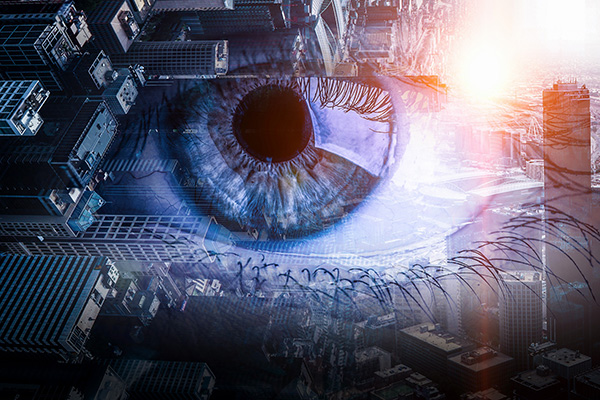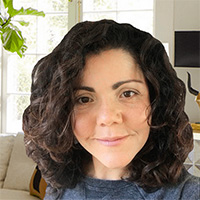The Psychic Insights Of Remote Viewing
 In my own journey of intuitive development, I have been exploring the possibilities of Remote Viewing. It is a psychic skill that is not often talked about.
In my own journey of intuitive development, I have been exploring the possibilities of Remote Viewing. It is a psychic skill that is not often talked about.
Remote viewing is a clairvoyance technique that allows you to gather information about a distant or unseen target, such as a specific location, object, or event, using extrasensory perception (ESP) or “anomalous cognition.”
Remote viewers have minimal or no prior information about the target and rely solely on their capacity for “nonlocal awareness” (distant psychic sensing) to explore and describe it.
Remote Viewing gained popularity in the 1970s and 1980s, primarily through the efforts of the U.S. government-sponsored Stargate Project.
It is essentially the practice of clairvoyance using a formalized technique or protocol developed by the U.S. military during the Cold War as a tool for intelligence gathering. Over time, however, it has transcended its military origins and become a subject of interest to those seeking to tap into their latent psychic abilities.
Although a number of remote viewing studies have been conducted by individual researchers, most of the activity in this field to date has been conducted by three major laboratories: The Stanford Research Institute (SRI) in Palo Alto, California, the Princeton Engineering Anomalies Research Laboratory (PEAR) at Princeton University, and the Mobius Laboratory in Los Angeles, California.
Remote viewing is not about seeing with your eyes; it’s about seeing with your mind ~ Joseph McMoneagle
As an evolving psychic and scholar, I found some of the Mobius research findings to be the most interesting. This may be because the Mobius research took a different approach than PEAR and SRI, who based their research on the notion that the nonlocal awareness (distant psychic sensing) used in successful remote viewing studies must first be proven to exist. Mobius founder Stephan Schwartz, however, established his lab in 1968 to begin experiments in what he called “distant viewing” on the premise that nonlocal consciousness does in fact exist.
Over 23,000 people participated in the Mobius studies, and the research yielded some interesting data relevant to anyone interested in clairvoyance and psychic abilities:
The Psychic Brain
The Mobius studies found that right-brained people do better with remote viewing than left-brained people. This confirms something that mystics have always known and that modern psychics, mediums and intuitives are often personally aware of. The left brain is responsible for logic, language and analysis, while the right brain is responsible for creativity, intuition and emotion.
Apart from remote viewing research, other studies have also shown that right-brained people are also more likely to experience déjà vu, out-of-body experiences, and telepathy. They are also more likely to be interested in spirituality and have a strong sense of empathy.
A study published in 2007 in the journal Neuropsychologia found that people who scored higher on a test of right-brain dominance were more likely to report experiencing déjà vu. The study also found that people who scored higher on a measure of creativity were more likely to report experiencing déjà vu.
Another study, published in 2014 in the journal Frontiers in Psychology, found that people who scored higher on a test of right-brain dominance were more likely to report experiencing out-of-body experiences. That study also found that people who reported out-of-body experiences were more likely to score higher on a measure of dissociation.
Dissociation refers to a mental state where an individual experiences a disconnection between thoughts, identity, consciousness, and memory. Altered states of consciousness, including dissociative states, may make us more receptive to information beyond the ordinary sensory channels. It gives us access to a different level of awareness or perception. Dissociation could lead to an expansion of consciousness, enabling us to tap into information beyond our immediate surroundings. This expanded awareness facilitates the reception of information through extrasensory means.
A third study, published in 2013 in The Journal of Parapsychology, found that people who scored higher on a test of right-brain dominance were more likely to report experiencing telepathy. This study also found that people who reported experiencing telepathy were more likely to score higher on a measure of empathy.
Remote viewing is a way of knowing that is not bound by the limitations of our physical senses ~ Charles Tart
The Psychic Personality
Another interesting finding by Mobius is that extroverts and introverts approach remote viewing differently. These two types of people apparently develop different strategies for opening up to the “nonlocal,” and ritual behavior help some people do so more succesfully.
To me, this shows how the personality and character traits of a psychic, medium or intuitive can play a definitive role in their psychic development, reading approach and style. It also explains why some people relate better to certain readers than others. An extroverted intuitive reader, for example, is therefore not more gifted or accurate than an introverted one, or vice versa. They just approach the process differently.
This is why it is important to work with readers with whom you personally connect. It also confirms that psychic development training and practice is not one size fits all and should be tailored to the unique needs and characteristics of individual students.
By the way, Mobius found that men and women performed equally well in remote viewing experiments. So, it appears to be a myth that women are generally more psychic or intuitive than men. It may well be that this perceived difference is rather due to cultural and social expectations and stereotypes, instead of actual ability.
Psychic Awareness Is Limitless
A third Mobius finding that I found meaningful is the fact that space and time are not limitations to remote viewing success, and no level of blindness has any effect.
In research experiments, “blindness” refers to the practice of withholding information from participants or researchers in order to reduce or eliminate biases that may arise from expectations or other sources. There are different types of blindness, such as single-blind, double-blind, and triple-blind, depending on who is kept ignorant of the information. For example, in a double-blind experiment, both the participants and the researchers are unaware of the information.
What these findings confirm is that psychic reading can be done anywhere at any time. A reader does not need to be in the same room as the person they are reading for. Psychic perception is also not limited to perceiving the present, but the reader can also perceive information from both the past and the future.
Joseph McMoneagle, a well-known remote viewer who was recruited by the US government to participate in Stargate, was one of the program’s most successful remote viewers. He has published various books and papers on remote viewing and its practical applications, including the fact that it can be used to predict future events. For example, in 2015 he published a paper containing a declassified Defense Intelligence Agency (DIA) transcript remote viewing sessions he carried out in 1979 to prove that remote viewing can be “precognitive,” i.e. seeing into the future.
Although each of us obviously inhabits a separate physical body, the laboratory data from a hundred years of parapsychology research strongly indicate that there is no separation in consciousness ~ Russell Targ
Learning To Remote View
The journey of developing your intuitive awareness and psychic ability is a personal one, marked by self-discovery and the unlocking of latent abilities. Remote viewing may just be the key that will open new levels of awareness for you. If you are interested in learning more about Remote Viewing, I suggest you do some research online or attend a workshop or seminar. There are also many books and articles on the subject.
Some things to keep in mind in your exploration:
Patience: Remote viewing is a skill that takes practice to develop. There are many resources available online and in libraries that can teach you how to remote view.
Accuracy: Remote viewing is not always accurate. It is important to use your intuition and common sense to evaluate any information you receive through remote viewing.
Privacy: Remote viewing should not be used to invade the privacy of others. It is important to respect the boundaries of others and to use remote viewing only for personal growth or to help others.
Remote viewing is a testament to the untapped capabilities of the mind. As I continue this exploration myself, I am excited by the prospect of gaining more new perspectives, expanding my consciousness, and navigating reality with a heightened sense of awareness and insight.
|
|

Leave a Reply